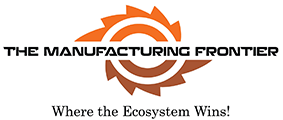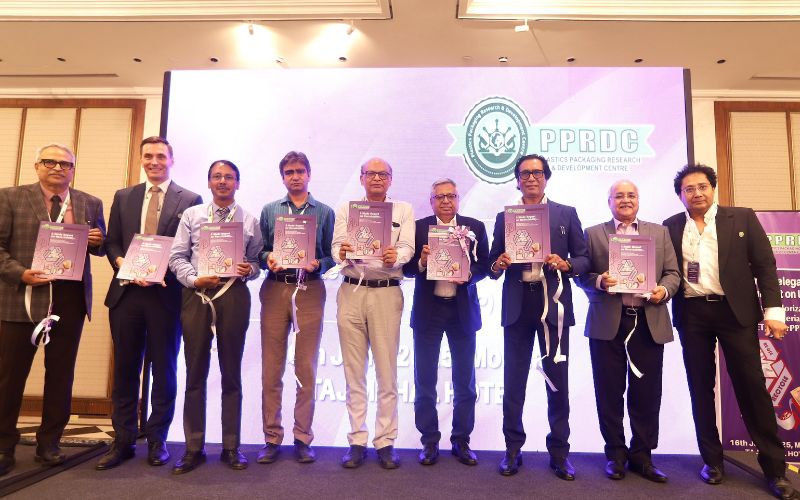“Collaborative efforts between policymakers, recyclers, and industry stakeholders are vital for achieving our national sustainability commitments and contributing meaningfully to global environmental goals.” Deepak Mishra, Joint Secretary, Department of Chemicals and Petro-Chemicals, Government of India
“Such an initiative will help bring greater clarity and confidence, while accelerating our collective journey toward a more circular and sustainable packaging ecosystem.” Prabh Das, Managing Director and Chief Executive Officer, HPCL-Mittal Energy Limited (HMEL)
“Together, through collaboration and investment, we have the chance to reshape the future of plastic waste management for generations to come.” Jacob Duer, President & CEO, Alliance to End Plastic Waste
“Let us move forward with openness and intention, supporting one another and learning along the way. This is a call from within, from one industry leader to all others: let us be remembered not for our packaging, but for the legacy of responsibility we leave behind.” Ashok Chaturvedi, Chairman and Managing Director, UFlex Limited
“The challenge of integrating recycled content into food packaging cannot be solved by regulations alone, it requires robust technical solutions developed by industry and scientists together.” Jeevaraj Gopal Pillai, Trustee – PPRDC; Director – Sustainability and President – Flexible Packaging and New Product Development, UFlex Limited
“While there are currently no specific guidelines governing the use of recycled polypropylene (rPP) in food packaging, this presents a tremendous opportunity for India to lead with a progressive, science-backed regulatory framework.” Mihir Banerji, Secretary General, PPRDC
The 6th Plastics Packaging Research and Development Centre (PPRDC) Summit was held recently in New Delhi, bringing together policymakers, industry leaders and experts to deliberate on the future of food-grade recycled materials in India. The event served as a powerful platform for collaboration, with participation from government bodies, brand owners, producers, and recyclers, demonstrating a shared commitment to advancing sustainable packaging. Senior representatives from Department of Chemicals & Petrochemicals, BIS, FSSAI, Reliance Industries Limited, Tata Consumer Products, Dabur India Limited, Nestlé India Limited, Jubilant FoodWorks Limited, Coco-Cola India, PepsiCo India Holdings Pvt. Ltd., Tops, Mars India and UFlex Limited, among others, came together to share insights, address challenges, and align on the way forward.
The summit also marked the official launch of a landmark study report titled “Recycling of Post-Consumer Food-grade Polypropylene (PPs) Waste: Sustainable Valorization of Recycled PP Material”, developed by PPRDC. The report presents a scientific and regulatory roadmap for safely incorporating recycled polypropylene (rPP) into food-grade packaging materials — a critical step toward achieving India’s circular economy goals. It highlights how brand owners can benefit from adopting rPP in their packaging by aligning with consumer values, reducing their carbon footprint and waste, and strengthening brand equity in a market increasingly driven by sustainable choices. The study underscores the importance of recycling post-consumer PP waste and integrating rPP into food-contact packaging, while emphasizing the need for strict compliance with global food safety standards, such as those set by the US FDA.
Polypropylene (PP), despite being the second-most widely produced plastic globally, sees a dismally low recycling rate of just 3–5%. The report presents a comprehensive solution, utilising advanced multi-point decontamination and double-filtration technologies to safely incorporate up to 60% post-consumer recycled polypropylene (PP) into the core layer of multi-layered flexible packaging for food contact materials (FCMs), without compromising on food safety or packaging performance.
Deepak Mishra, Joint Secretary, Department of Chemicals and Petro-Chemicals, Government of India, said, “As a regulatory authority, we recognize the significant progress the industry has made in enhancing recycling capacities, particularly for PET, to align with the objectives of the EPR framework. The recent policy facilitation, including exemptions in cases of technical non-feasibility, has been introduced to support a balanced and pragmatic transition. However, it is equally important for the industry to proactively advance standards and processes for recycling other materials like PE and PP. I commend PPRDC for organizing yet another constructive platform to address these crucial issues. Collaborative efforts between policymakers, recyclers, and industry stakeholders are vital for achieving our national sustainability commitments and contributing meaningfully to global environmental goals.”
Prabh Das, Managing Director and Chief Executive Officer, HPCL-Mittal Energy Limited (HMEL), said, “We appreciate the proactive steps the industry has taken towards enabling the safe use of recycled materials in packaging. These efforts reflect a growing sense of shared responsibility. At the same time, we urge the industry stakeholders to lead the development of a clear framework for materials and practices that currently fall outside the scope of existing government guidelines. Such an initiative will help bring greater clarity and confidence, while accelerating our collective journey toward a more circular and sustainable packaging ecosystem.”
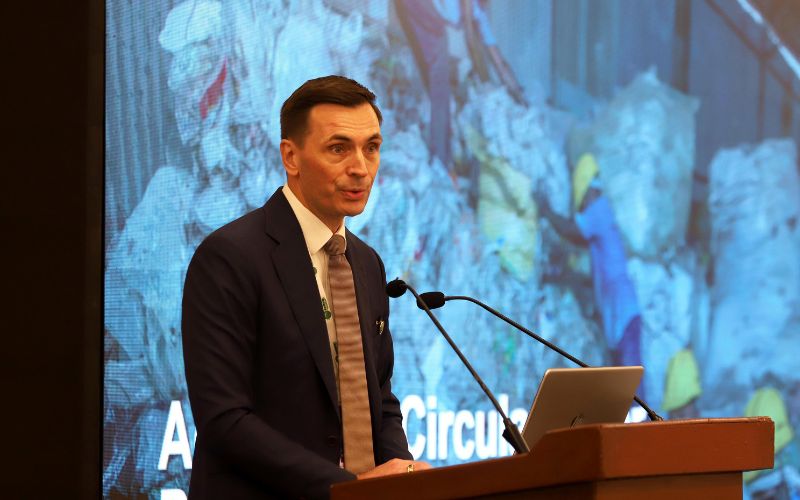
Jacob Duer, President & CEO, Alliance to End Plastic Waste, commented, “As the world grapples with the growing challenge of plastic waste, no single entity can solve this issue alone. What we need is a collective, committed effort across governments, the private sector, financial institutions, and communities. At the Alliance to Ends Plastic Waste, we see both an urgent challenge and a tremendous opportunity to unlock value, drive innovation, and build the infrastructure necessary for a truly circular economy. India, with its rapidly growing economy, progressive policies, and thriving innovation ecosystem, stands at the forefront of this movement. Our focus is on enabling scalable solutions, supporting cutting-edge technologies, and strengthening partnerships that retain plastic’s value in the economy and out of the environment. Together, through collaboration and investment, we have the chance to reshape the future of plastic waste management for generations to come.”
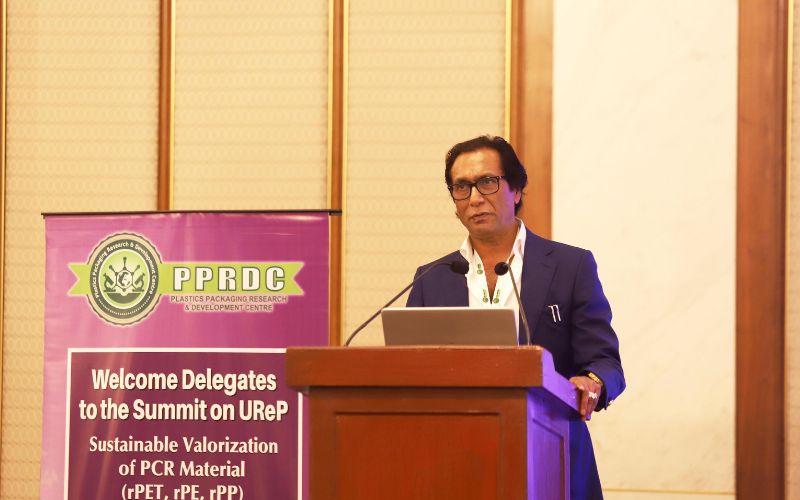
Ashok Chaturvedi, Chairman and Managing Director, UFlex Limited, remarked, “It is time we stop waiting for regulations to push us into action. I humbly urge all brand owners, producers, recyclers, and packaging converters to stand together, not out of obligation but toward a common good and shared responsibility. Let us begin with small but steady steps to support the safe and wider use of recycled materials in packaging. What we need now is commitment and courage. We must stop viewing sustainability as a regulatory burden and start embracing it as a business imperative. The government is doing its part by providing policies and guidance. Now, it is up to us as an industry to respond with sincerity and purpose. We don’t have to wait for rules to force our hand; we can choose to do what is right simply because it matters. Let us move forward with openness and intention, supporting one another and learning along the way. This is a call from within, from one industry leader to all others: let us be remembered not for our packaging, but for the legacy of responsibility we leave behind.”
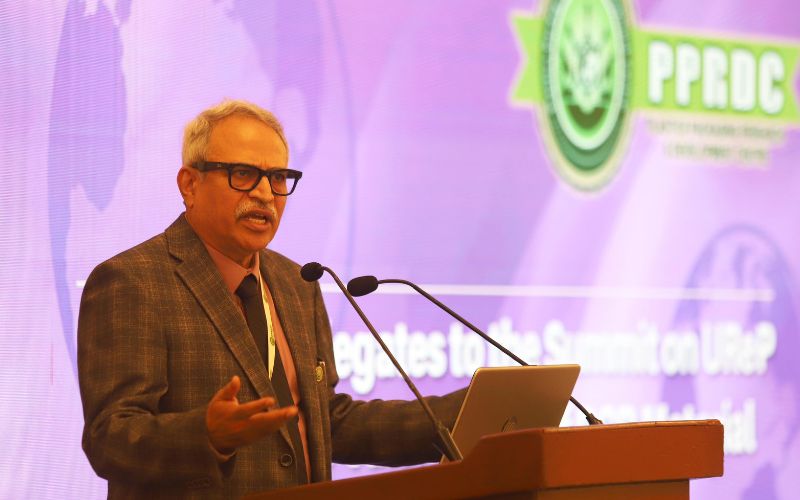
Jeevaraj Gopal Pillai, Trustee – PPRDC; Director – Sustainability and President – Flexible Packaging and New Product Development, UFlex Limited, added, “As India sharpens its focus on Extended Producer Responsibility and circularity targets, the need for scalable, food-safe recycling technologies is more urgent than ever. The challenge of integrating recycled content into food packaging cannot be solved by regulations alone, it requires robust technical solutions developed by industry and scientists together. At UFlex, we’ve made significant strides in using rPE and rPP in the core layer of the co-extrusion process, which ensures that recycled material remains safely away from food contact layers. This innovation, along with AI-enabled sorting and advanced decontamination processes, positions us to meet India’s EPR requirements while maintaining the highest standards of food safety. We believe this collaborative, science-led approach is essential for building a truly circular economy for flexible packaging in India.”
Mihir Banerji, Secretary General, PPRDC, concluded, “While there are currently no specific guidelines governing the use of recycled polypropylene (rPP) in food packaging, this presents a tremendous opportunity for India to lead with a progressive, science-backed regulatory framework. We are in active discussions with the government to help shape policies that ensure both safety and sustainability. With the right guidance in place, India can unlock the full potential of food-grade rPP, enabling innovation, reducing dependency on virgin plastics, and supporting the nation’s circular economy and environmental goals.”
In alignment with India’s Plastic Waste Management Rules, which include stringent Extended Producer Responsibility (EPR) mandates, and tightening Circularity Targets — mandating up to 20% recycled content in flexible plastic packaging and 10% in multilayered formats by 2027–28 — the report underscores the urgency and feasibility of mainstreaming food-grade recycled plastics such as rPET, rPE, and rPP. This initiative not only helps the industry meet its EPR obligations but also ensures a steady and quality-assured supply of recycled raw materials, essential for sustaining packaging operations and achieving long-term environmental goals.
The summit featured robust discussions on regulatory evolution, EPR implementation, and the critical role of advanced recycling technologies in transforming India’s plastic packaging industry into a circular and sustainable model.
About PPRDC: PPRDC (www.pprdc.in) is a non-profit research and development centre established by the Multilayer Plastics Films Sanitation Trust. The event agenda included a briefing by representatives from key industry bodies and PPRDC executives on the proposal for the adoption of a national standard for regulating PCR in packaging and best practices for building a circular economy.
